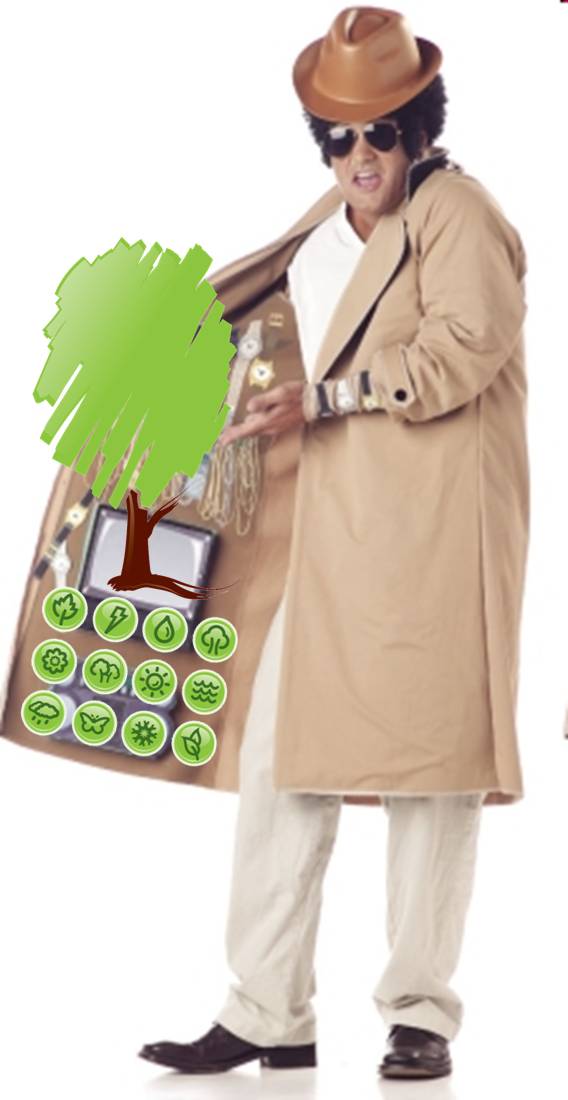 For any of you worries about the 1 Billion tons of carbon offsets in the Waxman-Markey climate change bill, or the 2 billion tons in the just-released Kerry-Boxer draft, here’s another reason to be worried. Some have decried offsets as being similar to a medieval indulgence, where the bearer pays to be able to have the right to sin later (most recently Jon Stewart in his hilarious “Cap’N Trade” segment from Oct 5, 2009)
For any of you worries about the 1 Billion tons of carbon offsets in the Waxman-Markey climate change bill, or the 2 billion tons in the just-released Kerry-Boxer draft, here’s another reason to be worried. Some have decried offsets as being similar to a medieval indulgence, where the bearer pays to be able to have the right to sin later (most recently Jon Stewart in his hilarious “Cap’N Trade” segment from Oct 5, 2009)
But now news that among the people getting into the carbon offsets craze are various international crime rings and mafia groups. This from the Guardian UK:
A revolutionary UN scheme to cut carbon emissions by paying poorer countries to preserve their forests is a recipe for corruption and will be hijacked by organised crime without safeguards, a Guardian investigation has found.
The UN, the World Bank, the UK and individuals including Prince Charles have strongly backed UN plans to expand the global carbon market to allow countries to trade the carbon stored in forests.
If, as expected, this is agreed at crucial UN climate change talks taking place in Bangkok this week and concluding in Copenhagen in December, up to $30bn a year could be transferred from rich countries to the owners of endangered forests.
But experts on all sides of the debate, from international police to politicians to conservationists, have warned this week that the scheme, called Reducing emissions from deforestation and degradation (Redd), may be impossible to monitor and may already be leading to fraud. The UN itself accepts there are “high risks”.
Interpol, the world’s leading policing agency, said this week that the chances were very high that criminal gangs would seek to take advantage of Redd schemes…
“Alarm bells are ringing. It is simply too big to monitor. The potential for criminality is vast and has not been taken into account by the people who set it up,” said Peter Younger, Interpol environment crimes specialist and author of a new report for the World Bank on illegal forestry.
“Organised crime syndicates are eyeing the nascent forest carbon market. I will report to the bank that Redd schemes are open to wide abuse,” he said.
So, to sum up, carbon offsets not only mean that we won’t have to actually reduce our emissions, instead relying on Enron-style accounting where we just make “reductions” on paper, but these offsets may be going to fund international crime, human trafficking, drugs, etc. When criminals are running carbon offset schemes, it’s likely the forest we actually paid to protect was clearcut months ago.
One of my favorite quotes on carbon offsets comes from, of all places, the Wall St Journal, Oct 20, 2008:
“The Federal Trade Commission also is examining whether…credits really represent emission cuts that wouldn’t otherwise have happened. With a tangible product, say, an apple, a buyer can easily judge a seller’s claims that it’s “crisp and juicy and red,” says James Kohm, associate director of the FTC’s enforcement division. Intangible products, such as pollution credits, “have a greater potential for deception.”
![]()
However we decide to regulate greenhouse gases, we need to keep our eye on the enforcement mechanism for offsets. Kerry-Boxer offers some language to monitor domestic monitoring, but with the possibility of so much monkey business overseas, is it even worth dealing with offsets?


